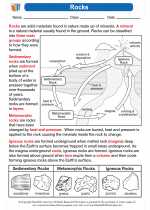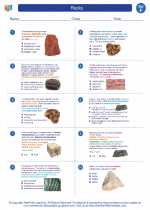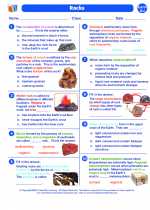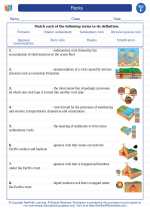Nervous System
The nervous system is a complex network of nerves and cells that transmit signals between different parts of the body. It is responsible for coordinating and controlling the body's activities, including sensing and responding to the environment.
Parts of the Nervous System
The nervous system is divided into two main parts:
- Central Nervous System (CNS): This consists of the brain and spinal cord, which are responsible for processing and interpreting information from the senses and sending out instructions to the rest of the body.
- Peripheral Nervous System (PNS): This includes all the nerves outside the central nervous system that connect the brain and spinal cord to the rest of the body, allowing for communication between the CNS and the body's organs and tissues.
Functions of the Nervous System
The nervous system has three main functions:
- Sensory Function: The nervous system receives information from the body's internal and external environment through sensory receptors.
- Integrative Function: The nervous system processes and interprets sensory information, allowing for decision-making and coordination of the body's responses.
- Motor Function: The nervous system sends signals to muscles and glands, enabling the body to respond to sensory input through movement and secretion of hormones.
Types of Neurons
Neurons are the basic building blocks of the nervous system and are specialized cells that transmit information through electrical and chemical signals. There are three main types of neurons:
- Sensory Neurons: These neurons carry signals from the sensory receptors to the CNS.
- Motor Neurons: These neurons transmit signals from the CNS to the muscles and glands, enabling movement and secretion of hormones.
- Interneurons: These neurons act as connectors between sensory and motor neurons, facilitating communication within the CNS.
Study Guide
Here are some key points to remember when studying the nervous system:
- Identify the main parts of the nervous system and their functions.
- Understand the roles of sensory, motor, and interneurons in transmitting signals within the nervous system.
- Describe the process of signal transmission between neurons, including the role of neurotransmitters.
- Explain the importance of the nervous system in coordinating and controlling the body's activities.
- Discuss the impact of damage or diseases of the nervous system on overall health and functioning.
◂Science Worksheets and Study Guides Sixth Grade. Rocks
Study Guide Rocks
Rocks  Activity Lesson
Activity Lesson Rocks
Rocks  Worksheet/Answer key
Worksheet/Answer key Rocks
Rocks  Worksheet/Answer key
Worksheet/Answer key Rocks
Rocks  Worksheet/Answer key
Worksheet/Answer key Rocks
Rocks  Worksheet/Answer key
Worksheet/Answer key Rocks
Rocks  Vocabulary/Answer key
Vocabulary/Answer key Rocks
Rocks  Vocabulary/Answer key
Vocabulary/Answer key Rocks
Rocks  Vocabulary/Answer key
Vocabulary/Answer key Rocks
Rocks 

 Activity Lesson
Activity Lesson
 Worksheet/Answer key
Worksheet/Answer key
 Worksheet/Answer key
Worksheet/Answer key
 Worksheet/Answer key
Worksheet/Answer key
 Worksheet/Answer key
Worksheet/Answer key
 Vocabulary/Answer key
Vocabulary/Answer key
 Vocabulary/Answer key
Vocabulary/Answer key
 Vocabulary/Answer key
Vocabulary/Answer key

The resources above cover the following skills:
EARTH AND SPACE SCIENCE
Earth’s Systems
Plan and carry out investigations that demonstrate the chemical and physical processes that form rocks and cycle Earth’s materials (e.g., processes of crystallization, heating and cooling, weathering, deformation, and sedimentation).